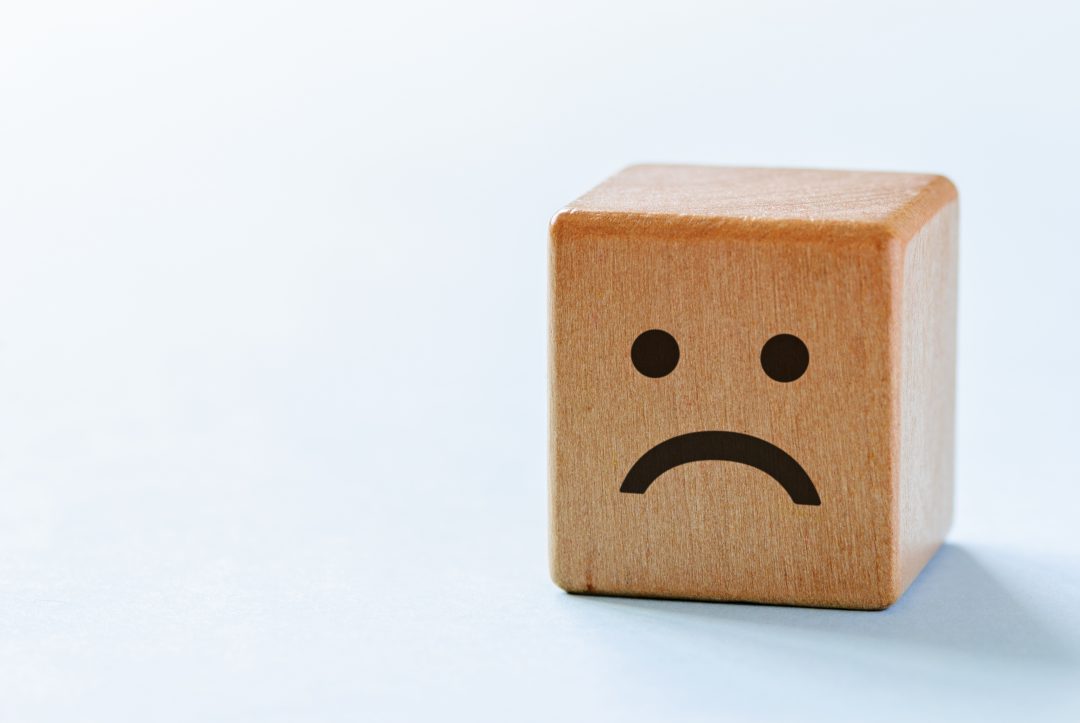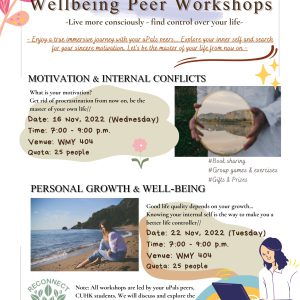Do you still remember the sense of euphoria and the strong connection that you experienced when you first entered a romantic relationship? Yet, no one may have prepared you for the separation. Whether it was you or your beloved who decided on the move, you may be feeling really bad about the break-up. It might be difficult to know how heartbreaking it can be until it happens to you.
While we all wish to have an immediate relief from pain, there seems to be no magic solution. It takes time. But there are some ways that could help us suffer less and put ourselves together, despite the loss:
- Understanding the emotions and experiences
- Reflecting on what has been lost
- Going through a journey of grief
- Starting to adjust
- Finding sources of support

Understanding the emotions and experiences
The pain of separation may gnaw at the core of our being and it could have many manifestations. Below are some common emotional reactions you may experience following the loss:
- Sadness, sorrow, despair and desolation: It is common for us to feel sad and lonely, and to cry a lot. At times, you may feel an intense need to resume contact with your ex-partner. It may be especially distressful on some special days or moments, such as anniversary date or during weekends when you two used to spend time together.
- Fear: It may be frightening and difficult to imagine life without your beloved, particularly if you have grown to become quite dependent on your partner. Some may even share that they seem to have no courage to love or be loved again.
- Anger: You may experience anger towards the partner who initiated or people contributed to the breakup, and resent them for making your life so miserable.
- Self-blame and guilt: You may blame yourself for what went wrong. You may replay about the relationship over and over again, saying to yourself, “If only I had done this…… If only I had done that …”. Your self-esteem may suffer a serious blow if you perceive yourself as being ‘rejected’ or ‘abandoned’. On the other hand, you may feel guilty if you were the one who chose to end the relationship.
- Confusion: Life could be very different without the significant other. The familiar world might seem no longer there and you might seem to have lost your bearings and purposes in life amidst the emotional turmoil.
- Numbness: While one might expect feelings like sadness and despair as described above, many might find this as a surprise: Numbness. Numbness usually follows a shock, such as breakup.

Apart from feelings, physically, you may find yourself unable to stop and rest, feeling restless and agitated. Sleep is often hard to come by and exhaustion may quickly follow, but still you cannot rest. Some may also have difficulty in keeping organized and may start, out of habit, to do something involving their ex-partners as well. At first, your feelings may be more intense, almost unbearable, and the physical responses may be more frequent. Fortunately, this intensity will not last forever. The second point – Reflecting on what has been lost helps us make sense of these experiences and find a way through them.
Reflecting on what has been lost
Each relationship is unique. What has been lost after a break-up may be personal and different for everyone. Even some couples, who have not dated for a long time, might also find it hard to get through the separation.

- Companionship, friendship, shared memories and activities;
- Intimacy, physical closeness, sex;
- Appreciation and feedback;
- Security, safety, stability, peace of mind, and ability to rest and to relax;
- Trust in others, in yourself, in the world;
- Confidence and certainty; a sense of continuity;
- Freedom to move about, interact, be yourself, be independent;
- Hopes of peace, or success;
- Expectations of help or support; of sharing responsibilities, of having more time; of being able to look forward to things;
- Pleasure in another person or things; laughter, humour;
- Opportunities for setting things right; for saying what you thought or felt;
- Roots a family, a home, a language, a culture; ease of communication;
- Routine, structure, familiarity;
- Role, status, or position
- Self-confidence and self-esteem are often shaken by a loss, and by the demand to adjust that it brings with it.

Understanding about the impacts of a loss with compassion might help you make sense of why you are so painful. And we know that it is easier to adjust to losses that make sense while going through a journey of grief.
Going through a journey of grief
While many might wish to, it is hard to totally avoid pain and loneliness. There are ways which could help us along the journey of grief.
Remembering
While most of us think that blocking out the memories and forgetting our ex-partners may help relieve the pain of loss, it is usually not true. Instead, the past experiences you spent with the beloved formed some parts of us such as our thoughts, attitudes, reactions and preferences, be they good or bad. The better aim maybe remembering while adapting to changes following the loss. The journey of grief is complex, often like running on twin tracks of coping with the feelings of loss while adjusting and adapting to it.
Coping with the emotions and feelings
Feelings of sadness, anger, fear and desolation are all common experiences after a loss. Attending to and expressing your feelings might help you make sense of them and assimilate the changes in life. How you express feelings is sort of a personal choice: some might wish to talk to others while some may prefer to go in private. “Loss rituals” such as writing a letter, which you may or may not choose to send, may help in the process. Drawing, painting or writing a journal might also help to get your feelings out and aid in the grieving process.

Learning from the experiences
Some may like to reflect and learn from the break-up. When re-examining the quality of the relationship, please understand that it takes both parties to make a relationship work. It would seem unfair to attribute the failure to one person alone. Even though your partner may have been the one who initiated the breakup, it does not mean that you are the ‘culprit’ or that you are the inferior or less worthy party.
Starting to adjust
As time passes, you may develop a different perspective on the experiences. Your challenge is to find ways to reorganize your life. Although you cannot determine when you will fully recover, you can take the following steps to start moving in that direction:
Maintaining your daily routine
Dealing with losses might take its toll on your bodies and our minds. During the time when mental suffering is great, we tend to ignore our bodies, forgetting huge amounts of energy that readjustment would take. It would be a good idea to eat sensibly and regularly, trying to avoid twin problems of having too much comfort eating and not bothering to eat. The same holds true for exercises. Structure your time and follow some regular daily routine. Also you may not be as productive for a while when you are grieving, so please give yourself some allowance. It may also help to make lists and take breaks as your concentration may also be affected.
Nurturing yourself
Take good care of yourself while going through this grieving process. Spend some time each day on something pleasurable, and do something you enjoy or used to do when you were in lower mood. It is important to enjoy key aspects of your life while other components are mending.

Finding sources of support
Mobilizing your support system – do not be afraid to ask for help. Seeking support from friends and family is one of the most important ways in coping with a loss. Spending time with people who care and who will listen to your feelings is essential at this time. In addition to offering you the opportunity to ventilate your emotions, they can also provide you with alternative perspectives as well as support and encouragement.
Seeking professional help
Needing more help than those around you can provide is not a sign of failure. It may be a good idea to get professional help: making an appointment with a Counsellor at the Wellness and Counselling Centre or approaching other professionals for help. You may refer to the following guidelines for deciding when to seek professional help:
- If those close to you think you need professional support – please consider their views as we all might have difficulty to judge own needs at some points of time;
- If you feel utterly lonely, and none of your sources of support are helpful or available;
- If over a period of 6 months or more, you have been feeling completely stuck, making no progress either with your feelings or with adjusting to your new life;
- If deep depression has continued over an extended period of time without any sense that it is getting better;
- If you are seriously considering harming yourself, or doing away with yourself (you should see a doctor, or someone you trust immediately).

The ending of a relationship is something that many people may go through at one time or another. While it might be hard for you to experience the loss and may be very lonely, let us go hand in hand. We are here to support you.
“Healing ultimately may involve a process of self-discovery, personal growth and self-affirmation.”
How can I make an appointment?
- By telephone: Call WACC at 3943 7208 or 3943 3493 within office hours to arrange an appointment;
- Through internet: Online booking via WACC Initial Assessment Booking Service (For registered full-time undergraduate and postgraduate students who are new users of WACC counselling service only);
- In person: Visit WACC (located in 2/F Pommerenke Student Centre) within office hours to make an appointment.
If you have an urgent need to see a counsellor, you may visit WACC during office hours. The Duty Counsellor will assess your needs and make appropriate arrangements with you. If you need counselling service during non-office hours, please call the CUHK 24-hour Emotional Support Hotline at 5400 2055 (exclusively for CUHK Full-time Students and Part-time PGDE Students), or seek help from other Counselling Hotlines / Online Counselling Services.
Reference:
Butler, G., Grey, N., & Hope, R. A. (2018). Loss and bereavement. In Managing your mind: the mental fitness guide (pp.579-601). New York, NY, US: Oxford University Press.








